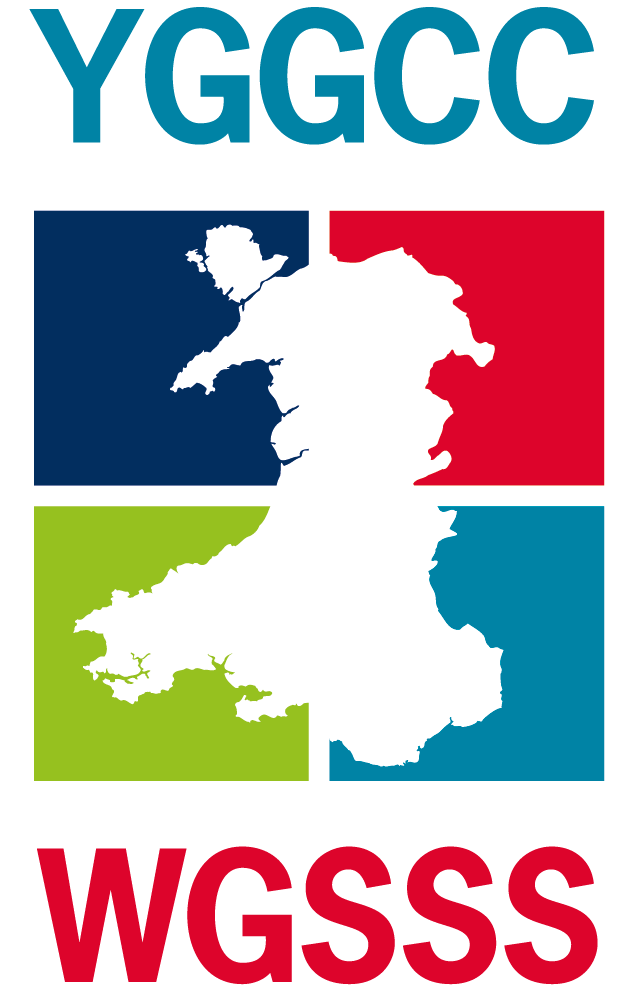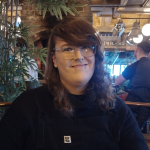Start date: October 2022 (Full time)
Award: General
Subject Pathway:
Digital Economy and Society
Thematic Cluster:
Economy, Enterprise, and Productivity Cluster
Transgender People’s Experiences of Digital Technology in Wales
“[Digital poverty is] the inability to interact with the online world fully, when where and how an individual needs to.” (Digital Poverty Alliance [no date])
I have given my project the neutral title “Exploring Transgender Experiences of Digital Technology in Wales”, but I am most interested in exploring digital poverty (for which an overarching description is provided above) with Welsh transgender people. I am particularly interested in the unique ways transgender people use technology (or if uses in common with cisgender people have special meaning), and the sociopolitical and socioeconomic material-semiotic links (Haraway 1992) between device and transgender subject. The Internet has and is used a site of counterpublic (Warner 2002) formation (Jenzen 2017; Haimson et al. 2021; Dame-Griff 2023) for transgender people, especially important given the minoritised subaltern status transgender people have come to occupy (Salah 2014; The Sizhen System 2025), fittingly I adopt a critical materialist (Marxist) standpoint (Raha 2021; Terán and Travis 2024) in my research. Research in this domain focuses on the potential for alternate modes of healthcare to be realised, e.g., DIY HRT (Edenfield et al. 2019) and discussion of surgery (Chuanromanee et al. 2024); medical intervention has historically been necessary to legitimise the transgender body, especially as a productive worker (Irving 2008). Outside this, there are benefits to wellbeing from access to trans social media platforms (Scott et al. 2025), but also harms, especially around online hate and ostracisation (Take et al. 2024). Though these use cases present a strong indication of typification of transgender digital poverty, it is their strong US-centricity that makes generalisation difficult for a Welsh context.
Though current understanding of digital inequality has adopted a more materialist stance, positioning digital skills and capabilities (Sen 1989; Hill 2003) as non-sacrosanct in understanding, problems adapting more generalised research findings to trans life remains difficult. The Welsh Minimum Digital Living Standard (Yates et al. 2023), adopted by the Welsh Government as method is problematic in its centring of cisheteronormative family structures as pilot study audience; as can be imagined this is not the experience of many transgender individuals (Catalpa and McGuire 2018; Richardson and Cockayne 2024; Levin et al. 2020).
I draw upon the social determinant method of modelling digital poverty proposed by Allmann (2022), though I follow the criticism of Dahlgren and Whitehead (2021) that the division of structural determinants allows them to be easily discarded. My work in my PhD is the construction of material-semiotic webs of digital poverty (between actors, with determinants being the semiotics), built upon extant literature and empiricised through semi-structured interviews and subsequent interpretative phenomenological analysis. Following this, I plan to undertake similar qualitative analysis on focus group transcripts (with practitioners addressing digital poverty and trans inequality) to ascertain current problems in support, and mechanisms to address these.
Bibliography
Allmann, K. 2022. UK Digital Poverty Evidence Review 2022. p. 104. Available at: https://digitalpovertyalliance.org/wp-content/uploads/2022/06/UK-Digital-Poverty-Evidence-Review-2022-v1.0-compressed.pdf [Accessed: 22 June 2023].
Catalpa, J.M. and McGuire, J.K. 2018. Family Boundary Ambiguity Among Transgender Youth. Family Relations 67(1), pp. 88–103. doi: 10.1111/fare.12304.
Chuanromanee, T., Haimson, O.L. and Metoyer, R. 2024. Using Discord in the Community, and Other Means of Online Collective Trans Care: Decision-making and Storytelling in Online Transgender Health Support Groups. Bulletin of Applied Transgender Studies 3(3–4), pp. 229–256. doi: 10.57814/5h62-g226.
Dahlgren, G. and Whitehead, M. 2021. The Dahlgren-Whitehead model of health determinants: 30 years on and still chasing rainbows. Public Health 199, pp. 20–24. doi: 10.1016/j.puhe.2021.08.009.
Dame-Griff, A. 2023. The Two Revolutions: A History of the Transgender Internet. New York, New York: New York University Press.
Digital Poverty Alliance. [no date]. Home. Available at: https://digitalpovertyalliance.org/ [Accessed: 15 April 2025].
Edenfield, A.C., Holmes, S. and Colton, J.S. 2019. Queering Tactical Technical Communication: DIY HRT. Technical Communication Quarterly 28(3), pp. 177–191. doi: 10.1080/10572252.2019.1607906.
Haimson, O.L., Dame-Griff, A., Capello, E. and Richter, Z. 2021. Tumblr was a trans technology: The meaning, importance, history, and future of trans technologies. Feminist Media Studies 21(3), pp. 345–361. doi: 10.1080/14680777.2019.1678505.
Haraway, D. 1992. The Promises of Monsters: A Regenerative Politics for Inappropriate/d Others. In: Cultural Studies. Routledge.
Hill, M. 2003. Development as Empowerment. Feminist Economics 9(2–3), pp. 117–135. doi: 10.1080/1354570022000077962.
Irving, D. 2008. Normalized Transgressions: Legitimizing the Transsexual Body as Productive. Radical History Review 2008(100), pp. 38–59. doi: 10.1215/01636545-2007-021.
Jenzen, O. 2017. Trans youth and social media: Moving between counterpublics and the wider web. Gender, Place & Culture 24(11), pp. 1626–1641. doi: 10.1080/0966369X.2017.1396204.
Levin, N.J., Kattari, S.K., Piellusch, E.K. and Watson, E. 2020. “We Just Take Care of Each Other”: Navigating “Chosen Family” in the Context of Health, Illness, and the Mutual Provision of Care amongst Queer and Transgender Young Adults. International Journal of Environmental Research and Public Health 17(19, 19), p. 7346. doi: 10.3390/ijerph17197346.
Raha, N. 2021. A Queer Marxist Transfeminism: Queer and Trans Social Reproduction. In: Gleeson, J. J. and O’Rourke, E. eds. Transgender Marxism. 1st ed. London: Pluto Press, pp. 85–115.
Richardson, L. and Cockayne, D. 2024. Queering the Future of Work: Queer and Trans Temporalities for (Re)thinking Work and Social Reproduction. In: The Handbook for the Future of Work. Routledge.
Salah, T. 2014. Subaltern. TSQ: Transgender Studies Quarterly 1(1–2), pp. 200–204. doi: 10.1215/23289252-2400019.
Scott, S.C., Davis, B.D. and Abramovich, A. 2025. “Internet hugs”: The use of Reddit as a valuable form of social support during medical transitioning. International Journal of Transgender Health, pp. 1–15. doi: 10.1080/26895269.2025.2520956.
Sen, A. 1989. Development as capability expansion. Journal of Development Planning 19(1), pp. 41–58.
Take, K., Zhong, V., Geeng, C., Bevensee, E., McCoy, D. and Greenstadt, R. 2024. Stoking the Flames: Understanding Escalation in an Online Harassment Community. Proc. ACM Hum.-Comput. Interact. 8, pp. 176:1–176:23. doi: 10.1145/3641015.
Terán, I. and Travis, E. 2024. A Small Piece of Red Sky to Fly In: Transition Pending Revolution. TSQ: Transgender Studies Quarterly 11(2), pp. 186–213. doi: 10.1215/23289252-11215457.
The Sizhen System. 2025. Gender Ternary and Subalternization REBUILD. Available at: https://thesizhensystem.substack.com/p/gender-ternary-and-subalternization [Accessed: 21 September 2025].
Warner, M. 2002. Publics and Counterpublics. Public Culture 14(1), pp. 49–90. doi: 10.1215/08992363-14-1-49.
Yates, S. et al. 2023. Towards a Welsh Minimum Digital Living Standard: Final Report. Cardiff, Wales: Welsh Government. p. 64. Available at: https://www.gov.wales/sites/default/files/publications/2023-02/towards-a-welsh-minimum-digital-living-standard-final-report_0.pdf [Accessed: 31 October 2023].
Biography
I'm Genevieve (or Gen for short), I use she/her and it/its pronouns, and I'm originally from West Bromwich in the English (West) Midlands. Prior to joining Swansea University, I completed a BEng in Chemical Engineering at the University of Birmingham. I switched to Computer Science after this (gaining an MSc in the subject at Swansea), and have found a home in the sociological and philosophical study of computing, where I am particularly interested in how computing intersects with gender and class.
I am a 3rd year PhD student in Computer Science at Swansea University supervised by Dr Troy Astarte (CS) and Dr Charlotte Jones (Sociology). I am part of the following research groups: Education, History, and Philosophy of Computing (EHP), the Centre for Research into Gender and Culture in Society (GENCAS), and the Trans Virtual Centre of Excellence (TVCE+).



